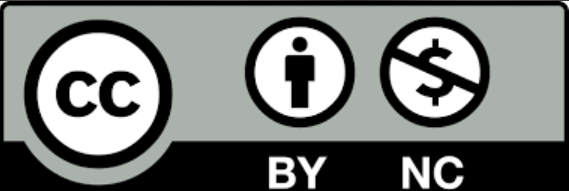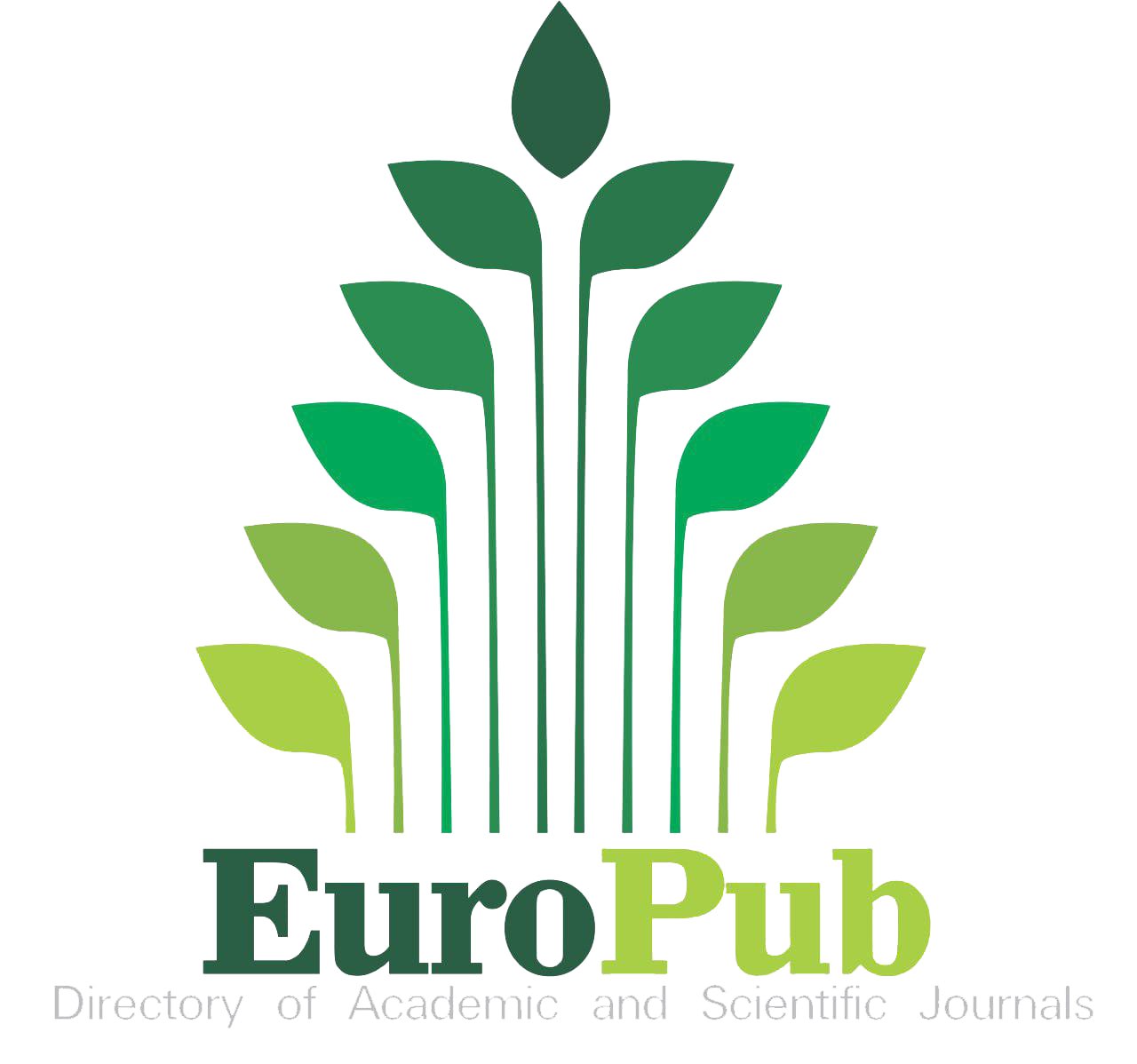Abstract
A review of the literature on chemically responsive hydrogels about the selection of selectivity based on classification, properties, and application is presented in this article. Chemically responsive hydrogels are a type of hydrogel that undergo changes in their properties in response to specific stimuli. These hydrogels have attracted significant attention due to their potential applications in various fields, including pharmaceuticals and agriculture. Chemically crosslinked hydrogels are synthesized by covalent crosslinking of end-functionalized macromeres. Currently, a great deal of research is being conducted on hydrogel networks, also known as smart networks or hungry networks. This is owing to their potential use in fields like biomedicine, pharmaceuticals, biotechnology, biosensors, agriculture, oil recovery, and cosmetics. When they sense small changes in their surroundings, smart hydrogels display significant physiochemical changes. Despite this, changes such as these are reversible; therefore, the hydrogels can return to their original state after they have caused a reaction once the trigger has been removed.
Recommended Citation
Alrbaihat, Mohammad; Abu-Afifeh, Qusay; and Al-Zeidaneen, Firas
(2023)
"Chemically Responsive Hydrogels, Properties, Pharmaceuticals, and Agricultural Applications: A Review,"
Al-Bahir: Vol. 2:
Iss.
2, Article 6.
Available at: https://doi.org/10.55810/2313-0083.1023
References
- Rosiak JM, Yoshii F. Hydrogels and their medical applications. Nucl Instruments Methods Phys Res Sect B Beam Interact with Mater Atoms 1999;151(1e4):56e64. Link
- Gibas I, Janik H. Synthetic polymer hydrogels for biomedical applications. 2010.
- El-Hefian EA, Elgannoudi ES, Mainal A, Yahaya AH. Characterization of chitosan in acetic acid: rheological and thermal studies. Turk J Chem 2010;34(1):47e56. Link
- Khan A, Othman MBH, Razak KA, Akil HM. Synthesis and physicochemical investigation of chitosan-PMAA-based dual-responsive hydrogels. J Polym Res 2013;20(10). Link
- Ullah F, Othman MBH, Javed F, Ahmad Z, Akil HM. Classification, processing and application of hydrogels: a review. Mater Sci Eng C 2015;57:414e33. Link
- Zainal SH, Mohd NH, Suhaili N, Anuar FH, Lazim AM, Othaman R. Preparation of cellulose-based hydrogel: a review. J Mater Res Technol 2021;10:935e52. Link
- Saini K. Preparation method, Properties and Crosslinking of hydrogel: a review. PharmaTutor 2017;5(1):27e36. Link
- Tenório FS, do Amaral Montanheiro TL, dos Santos AMI, dos Santos Silva M, Lemes AP, Tada DB. Chitosan hydrogel covalently crosslinked by gold nanoparticle: eliminating the use of toxic crosslinkers. J Appl Polym Sci 2021;138(6):49819. Link
- Hennink WE, van Nostrum CF. Novel crosslinking methods to design hydrogels. Adv Drug Deliv Rev 2012;64:223e36. Link
- Peppas NA, Bures P, Leobandung W, Ichikawa H. Hydrogels in pharmaceutical formulations. Eur J Pharm Biopharm 2000;50(1):27e46. Link
- Yom-Tov O, Seliktar D, Bianco-Peled H. PEG-Thiol based hydrogels with controllable properties. Eur Polym J 2016;74:1e12. Link
- Hajighasem A, Kabiri K. Cationic highly alcohol-swellable gels: synthesis and characterization. J Polym Res 2013;20(8):1e9. Link
- Khoushabi A, Schmocker A, Pioletti DP, Moser C, Schizas C, Månson J-A, et al. Photo-polymerization, swelling and mechanical properties of cellulose fibre reinforced poly (ethylene glycol) hydrogels. Compos Sci Technol 2015;119:93e9. Link
- Yu S, Zhang X, Tan G, Tian L, Liu D, Liu Y, et al. A novel pH-induced thermosensitive hydrogel composed of carboxymethyl chitosan and poloxamer cross-linked by glutaraldehyde for ophthalmic drug delivery. Carbohydr Polym 2017;155:208e17. Link
- Hussain I, Sayed SM, Liu S, Yao F, Oderinde O, Fu G. Hydroxyethyl cellulose-based self-healing hydrogels with enhanced mechanical properties via metal-ligand bond interactions. Eur Polym J 2018;100:219e27. Link
- Sun N, Wang T, Yan X. Self-assembled supermolecular hydrogel based on hydroxyethyl cellulose: formation, in vitro release and bacteriostasis application. Carbohydr Polym 2017;172:49e59. Link
- Wu D, Xu J, Chen Y, Yi M, Wang Q. Gum Arabic: a promising candidate for the construction of physical hydrogels exhibiting highly stretchable, self-healing and tensility reinforcing performances. Carbohydr Polym 2018;181:167e74. Link
- Singh B, Singh B. Modification of sterculia gum polysaccharide via network formation by radiation induced crosslinking polymerization for biomedical applications. Int J Biol Macromol 2018;116:91e9. Link
- Zeeshan R, Mutahir Z, Iqbal H, Ali M, Iqbal F, Ijaz K, et al. Hydroxypropylmethyl cellulose (HPMC) crosslinked chitosan (CH) based scaffolds containing bioactive glass (BG) and zinc oxide (ZnO) for alveolar bone repair. Carbohydr Polym 2018;193:9e18. Link
- El Fawal GF, Abu-Serie MM, Hassan MA, Elnouby MS. Hydroxyethyl cellulose hydrogel for wound dressing: fabrication, characterization and in vitro evaluation. Int J Biol Macromol 2018;111:649e59. Link
- Zhao Y, Shen W, Chen Z, Wu T. Freeze-thaw induced gelation of alginates. Carbohydr Polym 2016;148:45e51. Link
- Lu M, Liu Y, Huang Y-C, Huang C-J, Tsai W-B. Fabrication of photo-crosslinkable glycol chitosan hydrogel as a tissue adhesive. Carbohydr Polym 2018;181:668e74. https://doi.org/10.1016/j.carbpol.2017.11.016
- Dai H, Ou S, Liu Z, Huang H. Pineapple peel carboxymethyl cellulose/polyvinyl alcohol/mesoporous silica SBA-15 hydrogel composites for papain immobilization. Carbohydr Polym 2017;169:504e14. https://doi.org/10.1016/j.carbpol.2017.04.062
- Rasoulzadeh M, Namazi H. Carboxymethyl cellulose/graphene oxide bio-nanocomposite hydrogel beads as anticancer drug carrier agent. Carbohydr Polym 2017;168:320e6. https://doi.org/10.1016/j.carbpol.2017.03.045
- Benhalima T, Ferfera-Harrar H, Lerari D. Optimization of carboxymethyl cellulose hydrogels beads generated by an anionic surfactant micelle templating for cationic dye uptake: swelling, sorption and reusability studies. Int J Biol Macromol 2017;105:1025e42. https://doi.org/10.1016/j.ijbiomac.2017.07.139
- Mandal B, Ray SK. Removal of safranine T and brilliant cresyl blue dyes from water by carboxy methyl cellulose incorporated acrylic hydrogels: isotherms, kinetics and thermodynamic study. J Taiwan Inst Chem Eng 2016;60:313e27. https://doi.org/10.1016/j.jtice.2015.11.020
- Li N, Chen G, Chen W, Huang J, Tian J, Wan X, et al. Multivalent cations-triggered rapid shape memory sodium carboxymethyl cellulose/polyacrylamide hydrogels with tunable mechanical strength. Carbohydr Polym 2017;178:159e65. https://doi.org/10.1016/j.carbpol.2017.09.046
- Hong TT, Okabe H, Hidaka Y, Hara K. Radiation synthesis and characterization of super-absorbing hydrogel from natural polymers and vinyl monomer. Environ Pollut 2018;242:1458e66. https://doi.org/10.1016/j.envpol.2018.07.070
- Hong TT, Okabe H, Hidaka Y, Omondi BA, Hara K. Radiation induced modified CMC-based hydrogel with enhanced reusability for heavy metal ions adsorption. Polymer (Guildf) 2019;181:121772. https://doi.org/10.1016/j.polymer.2019.121772
- Zhao D, Shi X, Liu T, Lu X, Qiu G, Shea KJ. Synthesis of surfactant-free hydroxypropyl methylcellulose nanogels for controlled release of insulin. Carbohydr Polym 2016;151:1006e11.https://doi.org/10.1016/j.carbpol.2016.06.035
- Parhi R.Development and optimization of pluronic® F127 and HPMC based thermosensitive gel for the skin delivery of metoprolol succinate. J Drug Deliv Sci Technol 2016;36:23e33.https://doi.org/10.1016/j.jddst.2016.09.008
- Miao L, Hu J, Lu M, Tu Y, Chen X, Li Y, et al.Alkynylfunctionalization of hydroxypropyl cellulose and thermoresponsive hydrogel thereof prepared with P (NIPAAm-co-HEMAPCL). Carbohydr Polym 2016;137:433e40.https://doi.org/10..1016/j.carbpol..020
- Yuan M, Bi B, Huang J, Zhuo R, Jiang X.Thermosensitive and photocrosslinkable hydroxypropyl chitin-based hydrogels for biomedical applications. Carbohydr Polym 2018;192:10e8.https://doi.org/10..1016/j.carbpol..020
- Huang S, Wu L, Li T, Xu D, Lin X, Wu C.Facile preparation of biomass lignin-based hydroxyethyl cellulose superabsorbent hydrogel for dye pollutant removal. Int J Biol Macromol 2019;137:939e47.https://doi.org/10..1016/j.carbpol..020
- Nuryanthi N, Syahputra AR, Puspitasari T, Pangerteni DS,Kurniawan R, Astuti DAT, et al.Preparation of zeolite-gpolyacrylamide using radiation induced grafting and its adsorption isotherms study on several heavy metal ions. In: Macromolecular symposia. Wiley Online Library; 2020,1900139.https://doi.org/10..1002/masy..009
- Seera SDK, Kundu D, Banerjee T.Physical and chemical crosslinked microcrystalline cellulose-polyvinyl alcohol hydrogel: freezeethaw mediated synthesis, characterization and in vitro delivery of 5-fluorouracil. Cellulose 2020;27(11):6521e35.https://doi.org/10..1007/s10570-020-03427-2
- Zheng C, Liu C, Chen H, Wang N, Liu X, Sun G, et al.Effective wound dressing based on Poly (vinyl alcohol)/Dextran-aldehyde composite hydrogel. Int J Biol Macromol 2019;132:1098e105.https://doi.org/10..1016/j.carbpol..020
- Forouzandehdel S, Forouzandehdel S,Rami MR.Synthesis of a novel magnetic starch-alginic acid-based biomaterial for drug delivery. Carbohydr Res 2020;487:107889.https://doi.org/10..1016/j.carres..020
- Kuang J,Yuk KY,Huh KM.Polysaccharide-based superporous hydrogels with fast swelling and superabsorbent properties. Carbohydr Polym 2011;83(1):284e90.https://doi.org/10..016/j.carbpol..007
- Michida N,Hayashi M,Hori T.Comparison of event related potentials with and without hypnagogic imagery. Psychiatr Clin Neurosci 1998;52(2):145e7.https://doi.org/10..1111/j..1440-1819..1998.tb01049.x
- Bahram M,Mohseni N,Moghtader M.An introduction to hydrogels and some recent applications. In: Emerging concepts in analysis and applications of hydrogels. IntechOpen; 2016.
- Peppas NA,Hoffman AS.Hydrogels.In: Biomaterials science. Elsevier; 2020.p153e66.
- Wang W, Narain R, Zeng H. Hydrogels. In: Polymer science and nanotechnology. Elsevier; 2020. p. 203e44.
- Yesilyurt V, Webber MJ, Appel EA, Godwin C, Langer R, Anderson DG. Injectable self-healing glucose-responsive hydrogels with pH-regulated mechanical properties. Adv Mater 2016;28(1):86e91. https://doi.org/10.1002/adma.201504070
- Podual K, Doyle FJ, Peppas NA. Preparation and dynamic response of cationic copolymer hydrogels containing glucose oxidase. Polymer (Guildf) 2000;41(11):3975e83.
- Brahim S, Narinesingh D, Guiseppi-Elie A. Bio-smart hydrogels: Co-joined molecular recognition and signal transduction in biosensor fabrication and drug delivery. Biosens Bioelectron 2002;17(11e12):973e81.
- Klouda L, Mikos AG. Thermoresponsive hydrogels in biomedical applications. Eur J Pharm Biopharm 2008;68(1):34e45.
- Zhao L, Wang L, Zhang Y, Xiao S, Bi F, Zhao J, et al. Glucose oxidase-based glucose-sensitive drug delivery for diabetes treatment. Polymers 2017;9(7):1e21. https://doi.org/10.3390/polym9070273
- Kumar A, Han SS. PVA-based hydrogels for tissue engineering: a review. Int J Polym Mater Polym Biomater 2017;66(4):159e82. https://doi.org/10.1080/00914037.2016.1190930.
- Rodríguez E, Arques JL, Rodríguez R, Nu~nez M, Medina M, Talarico TL, et al. We are IntechOpen , the world ’ s leading publisher of Open Access books Built by scientists , for scientists TOP 1 %. vol. 32(tourism). Intech; 1989. p. 137e44. Available from: https://www.intechopen.com/books/advanced-biometric-technologies/liveness-detection-inbiometrics.
- Schoener CA, Hutson HN, Peppas NA. PH-responsive hydrogels with dispersed hydrophobic nanoparticles for the oral delivery of chemotherapeutics. J Biomed Mater Res, Part A 2013;101 A(8):2229e36.
- Gupta P, Vermani K, Garg S. Hydrogels: from controlled release to pH-responsive drug delivery. Drug Discov Today 2002;7(10):569e79.
- Fei J, Zhang Z, Zhong L, Gu L. PVA/PAA thermo-induced hydrogel fiber: preparation and pH-sensitive behavior in electrolyte solution. J Appl Polym Sci 2002;85(11):2423e30.
- Chandna S, Thakur NS, Kaur R, Bhaumik J. Lignin-bimetallic nanoconjugate doped pH-responsive hydrogels for laser-assisted antimicrobial photodynamic therapy. Biomacromolecules 2020;21(8):3216e30.
- Jin C, Song W, Liu T, Xin J, Hiscox WC, Zhang J, et al. Temperature and pH responsive hydrogels using methacrylated lignosulfonate cross-linker: synthesis, characterization, and properties. ACS Sustainable Chem Eng 2018;6(2):1763e71.
- Nho YC, Park SE, Kim H Il, Hwang TS. Oral delivery of insulin using pH-sensitive hydrogels based on polyvinyl alcohol grafted with acrylic acid/methacrylic acid by radiation. Nucl Instruments Methods Phys Res Sect B Beam Interact with Mater Atoms 2005;236(1e4):283e8.
- Ariffin A,Musa MS, Othman MBH, Razali MAA, Yunus F. Effects of various fillers on anionic polyacrylamide systems for treating kaolin suspensions. Coll Surf A Physicochem Eng Asp 2014;441:306e11. https://doi.org/10.1016/j.colsurfa.2013.09.021.
- Bossard F, Aubry T, Gotzamanis G, Tsitsilianis C. pH-Tunable rheological properties of a telechelic cationic polyelectrolyte reversible hydrogel. Soft Matter 2006;2(6):510e6.
- Abbasi S, Ghaffari S, Safa N. Porous silica as drug carrier for controlled delivery of sulfasalazine: the effect of alginate-N,O-carboxymethyl chitosan gel coating and amine functionalization. Appl Biochem Biotechnol 2022:1e14.
- Zhu J, Wu H, Li Z, Xu X, Xing H, Wang M, et al. Responsive hydrogels based on triggered click reactions for liver cancer. Adv Mater 2022;34(38):2201651.
- Yang Z, Chen L, McClements DJ, Qiu C, Li C, Zhang Z, et al. Stimulus-responsive hydrogels in food science: a review. Food Hydrocoll 2022;124:107218.
- Roy A, Manna K, Pal S. Recent advances in various stimuli-responsive hydrogels: from synthetic designs to emerging healthcare applications. Mater Chem Front 2022.
- El-Husseiny HM, Mady EA, Hamabe L, Abugomaa A, Shimada K, Yoshida T, et al. Smart/stimuli-responsive hydrogels: cutting-edge platforms for tissue engineering and other biomedical applications.Mater Today Bio 2022;13:100186.
- Lh Yahia. History and applications of hydrogels. J Biomed Sci 2015;4(2):1e23.
- Zhou Y, Liu G, Guo S. Advances in ultrasound-responsive hydrogels for biomedical applications. J Mater Chem B 2022.
- Calo E, Khutoryanskiy VV. Biomedical applications of hydrogels: a review of patents and commercial products. Eur Polym J 2015;65:252e67.
- Parhi R. Cross-linked hydrogel for pharmaceutical applications: a review. Adv Pharmaceut Bull 2017;7(4):515e30.
- Ahsan A, Tian W-X, Farooq MA, Khan DH. An overview of hydrogels and their role in transdermal drug delivery. Int J Polym Mater Polym Biomater 2021;70(8):574e84.
- Chai Q, Jiao Y, Yu X. Hydrogels for biomedical applications: their characteristics and the mechanisms behind them. Gels 2017;3(1):6.
- Sanchez LM, Actis DG, Gonzalez JS, Zelis PM, Alvarez VA. Effect of PAA-coated magnetic nanoparticles on the performance of PVA-based hydrogels developed to be used as environmental remediation devices. J Nanoparticle Res 2019;21(3).
- Saidi M, Dabbaghi A, Rahmani S. Swelling and drug delivery kinetics of click-synthesized hydrogels based on various combinations of PEG and star-shaped PCL: influence of network parameters on swelling and release behavior. Polym Bull 2020;77(8):3989e4010. https://doi.org/10.1007/s00289-019-02948-z.
- Hoare TR, Kohane DS. Hydrogels in drug delivery: progress and challenges. Polymer (Guildf) 2008;49(8):1993e2007. https://doi.org/10.1016/j.polymer.2008.01.027.
- Zeng Y, Wang J, Gu Z, Gu Z. Engineering glucose-responsive insulin. Med Drug Discov 2019;3:100010.
- Traitel T, Cohen Y, Kost J. Characterization of glucose-sensitive insulin release systems in simulated in vivo conditions. Biomaterials 2000;21(16):1679e87.
- Alrbaihat MR, Al-rawajfeh AE, Alshamaileh E. A mechanochemical preparation , properties and kinetic study of kaolin e N , P fertilizers for agricultural applications **2021; 2021. p. 265e71.
- AlShamaileh EM, Al-Rawajfeh AE, Alrbaihat MR. Solid-state mechanochemical synthesis of Kaolinite-Urea complexes for application as slow release fertilizer. JEcolEng 2019;20(9):267e76.
- Al-rawajfeh AE, Alrbaihat MR, Ehab M. Effects of milling time and speed on nutrient. Jordan J Chem 2020;15(2):51e9.
- Jamnongkan T, Kaewpirom S. Potassium release kinetics and water retention of controlled-release fertilizers based on chitosan hydrogels. J Polym Environ 2010;18(3):413e21.
- Agaba H, Orikiriza LJB, Obua J, Kabasa JD, Worbes M, Hüttermann A. Hydrogel amendment to sandy soil reduces irrigation frequency and improves the biomass of Agrostis stolonifera. Agric Sci 2011;2(4):544e50.
- Demitri C, Scalera F, Madaghiele M, Sannino A, Maffezzoli A. Potential of cellulose-based superabsorbent hydrogels as water reservoir in agriculture. Int J Polym Sci 2013;2013.
- Parvathy PC, Jyothi AN. Rheological and thermal properties of saponified cassava starch-g-poly(acrylamide) superabsorbent polymers varying in grafting parameters and absorbency. J Appl Polym Sci 2014;131(11):1e11.
- RadwanMA,Al-SweasyO,SadekMA, ElazabHA. Investigating the agricultural applications of acryl amide based hydrogel. Int J Eng Technol 2018;7:168e71 (4.29 Special Issue 29). Available at: https://www.sciencepubco.com/index.php/ijet/article/view/12726/4249
- Campos EVR, de Oliveira JL, Fraceto LF, Singh B. Polysaccharides as safer release systems for agrochemicals. Agron Sustain Dev 2015;35(1):47e66. Available at: https://link.springer.com/article/10.1007/s13593-014-0248-8
- Kaswala A, Dubey PK, Neethu TM, Dubey PK, Kaswala AR. Organic farming for climate smart horticulture prospects and applications of hydrogel technology in agriculture. Int J Curr Microbiol App Sci 2018;7(5):3155e62. Available at: https://www.ijcmas.com/7-5-2018/A.%20Kaswala,%20et%20al.pdf















Indexed in: